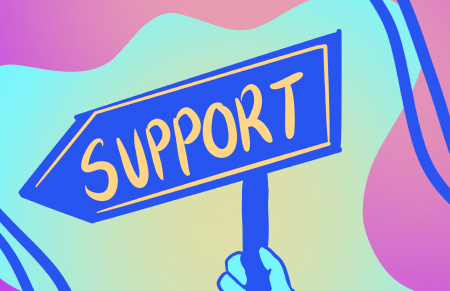Are you concerned about suicide? Are you worried a friend or family member may be Suicidal?
Take all signs of Suicidal Behaviour seriously.
If someone tells you they are thinking of suicide or if their behaviour is cause for concern, don’t ignore the situation or play it down. Many who die by suicide give signs or voice intentions to a confidante at some stage prior to taking their life. You may feel you can’t break this confidence, or that you are overreacting, but the safety of the person at risk is the priority. Never keep a plan for suicide a secret; tell a family member or friend immediately, even if you are breaking a confidence. Their life is the priority, not your relationship.
What to do if you see warning signs of Suicide
If you are concerned about suicide, opening the conversation by asking some simple & direct questions can help the person take the first steps to seeking help. Even though there has been some progress in attitudes to mental illness, there can still be a stigma around it and this stigma can be a barrier to opening up. Your willingness to listen in a non-judgemental, non-confrontational way can help them to seek professional help.
But how do you broach the subject?
Asking these questions will help you determine if your friend or family member is in immediate danger, and therefore needs help. It’s OK to ask these direct questions – it’s OK to use the “S” word:
- “Do you ever feel so bad that you think about Suicide?”
- “Do you have a plan to die by Suicide or take your life?”
- “Have you thought about when you would do it (today, tomorrow, next week)?”
- “Have you thought about what method you would use?”
Remember, your main aim is to ensure the person at risk remains safe and that they get the help they need.
Listening to a friend in distress:
When someone is in distress, one of the most powerful things you can do is help them talk to their problems & feelings.
- Open Questions: that don’t require a Yes/No answer, e.g. instead of “Does this upset you?” try ‘How does that make you feel?”
- Summarise: This helps show you have listened & understood what the person is experiencing e.g. “So, you feel like your partner doesn’t understand you.”
- Reflect: Simply repeating back a key word or phrase encourages the person to go on to expand on what has been said. E.g. you may respond to “I’ve been having a really tough time” with “A tough time?” This encourages the speaker to continue.
- Clarify: If they gloss over an important point or feeling, “Tell me more about….” can help the person clarify these points for themselves.
- Short Words of Encouragement: They may need help to go on with their story. A simple “yes”, “go on”, “I see” may help the person continue and shows you are interested.
- React: The person is often seeking empathy & understanding. “That must have been difficult”, “You’ve had a bad time” can help. Reacting is a simple human touch that is a vital part of building rapport & trust at a difficult time.
Other helpful hints:
- Try not to think ahead about what you will say
- Try not to ignore or deny the other person’s feelings
- Try not to talk about yourself of change topics
- Try not to advise, diagnose or criticise
- Try not to pretend you have understood if you haven’t.
The above information is based on the Samaritans model.
Remember.... Always take thoughts or plans of Suicide seriously
- Try not to minimise problems: trying to convince a person in crisis that it’s not that bad, or that they have everything to live for, may only increase feelings of guilt & hopelessness.
- Don’t try to shame a person into changing their mind. Your opinion of their situation is irrelevant.
- Reassure them that help is available, that what they are experiencing is treatable, and that suicidal feelings are temporary. Life can get better!
- If you feel the person isn’t in immediate danger, acknowledge their pain is legitimate and offer to work together to get help – “Let’s go together & get some help”. This support can come as a relief so it is essential that you follow through. Help them find a doctor or a mental health professional, participate in making the call, or attend the first appointment. If you are in a position to help, don’t presume that persistence is unwanted or intrusive.
3Ts Video 3STEPS to Mental Health
If you are concerned about how to approach this topic, you may find our 3Ts video on 3STEPS to Mental Health has some good practical tips and pointers on how to start a conversation related to mental health.

